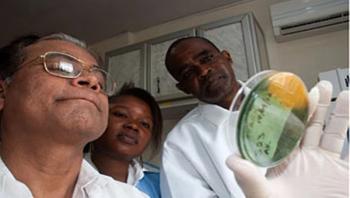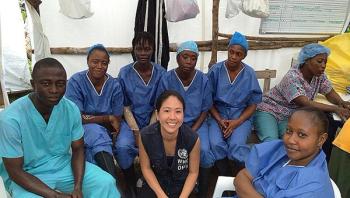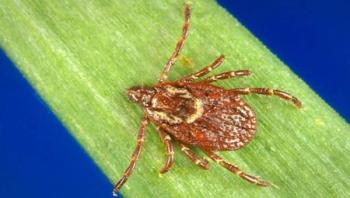
News



A quarter of the countries that responded to a World Health Organization (WHO) survey have national plans to preserve antimicrobial medicines like antibiotics, but many more countries must also step up. A new report, "Worldwide Country Situation Analysis: Response to Antimicrobial Resistance," which outlines the survey findings, reveals that while much activity is underway and many governments are committed to addressing the problem, there are major gaps in actions needed across all six WHO regions to prevent the misuse of antibiotics and reduce spread of antimicrobial resistance.


Between April 14, 2015 and April 20, 2015, the National IHR Focal Point for the Kingdom of Saudi Arabia notified WHO of 4 additional cases of Middle East respiratory syndrome coronavirus (MERS-CoV) infection, including one death.







Is the end of HIV near? Findings published this week in Antimicrobial Agents and Chemotherapy report that a novel, subdermal implant delivering potent antiretroviral (ARV) drugs shows extreme promise in stopping the spread of HIV. Scientists from the Oak Crest Institute of Science, in Pasadena, CA, report that they have developed a matchstick size implant, similar to a contraceptive implant, that successfully delivers a controlled, sustained release of ARV drugs for up to 40 days in dogs with no adverse side effects.



Mikiko Senga, a WHO epidemiologist specializing in emerging diseases was sent to Kenema, Sierra Leone in early June 2014 to gather data about the Ebola outbreak. There she found herself trying to make sense of information coming in a variety of ways, from bits of paper, blood samples, hospital records, and soon realized she was facing an outbreak about to catch fire. She called for help and, with colleagues who came to support her, set about developing ways to document and understand the size and nature of the Ebola outbreak racing through the district. Here is her story.





The month of May brings many things, among them Mother's Day, tulips, and Lyme Disease Awareness campaigns. But according to Dr. Richard S. Ostfeld, a disease ecologist at the Cary Institute of Ecosystem Studies in Millbrook, N.Y., if we want to get a leg up on tickborne illness we need to become vigilant earlier in the season.



Today’s healthcare industry has seen dramatic changes in the patient experience. The success of our advancements in healthcare and technology has created far more complex, chaotic interactions. From simple check-ups to operating room procedures, some might argue that today’s patient has become more of a number as opposed to a human being with personal preferences, feelings and emotions. Patient Experience Week (April 27-May 1, 2015) helps us to take a moment and center ourselves back to what is truly the heart of healthcare – care and compassion.




Nearly half of American hospitals aren't taking key steps to prevent a kind of gut infection that kills nearly 30,000 people annually and sickens hundreds of thousands more - despite strong evidence that such steps work, according to a new study. While nearly all of the 398 hospitals in the study use a variety of measures to protect their patients from Clostridium difficile infections, 48 percent haven't adopted strict limits on the use of antibiotics and other drugs that can allow the dangerous bug to flourish, the researchers report.

Research from the University of Manchester is bringing scientists a step closer to developing new therapies for controlling the body's response to allergies and parasitic worm infections.
